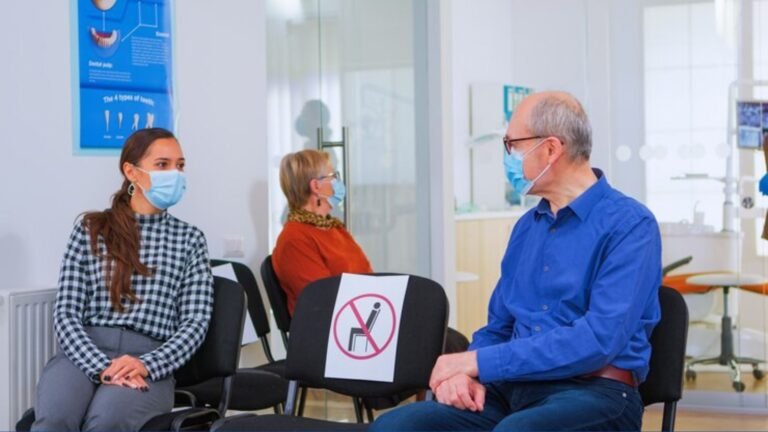The hospice care industry is meant to provide compassionate support to patients facing terminal illnesses, offering comfort not just to the patients but also to their families. Unfortunately, as with many sectors, there are instances of fraud that can undermine the integrity of these services. One of the most troubling cases in recent years involves Zola Hospice Fraud, raising concerns about the ethical practices within the industry. This article explores the allegations against Zola Hospice, the implications of these actions, and the steps being taken to address fraudulent behavior in the hospice care sector.
Understanding Hospice Care
Before diving into the specifics of the Zola Hospice case, it’s essential to understand what hospice care entails. Hospice is a type of healthcare designed to provide comfort and support to individuals in the final phases of a terminal illness. The goal is to improve the quality of life for both the patient and their family, focusing on pain management and emotional support rather than curative treatments.
The Importance of Integrity in Hospice Care
Integrity in hospice care is paramount. Patients and their families rely on these services during one of the most vulnerable times in their lives. Any breach of trust can have devastating effects not just on patients but on the families who are navigating grief and loss.
The Allegations Against Zola Hospice
Overview of Fraudulent Practices
Zola Hospice has been embroiled in allegations of fraud that raise significant ethical concerns. Reports suggest that the organization engaged in various deceptive practices, including:
Billing for Unnecessary Services: Claims have surfaced that Zola Hospice billed Medicare and other insurance providers for services that were either unnecessary or not provided at all.
Misrepresentation of Patient Eligibility: Allegations indicate that the hospice misrepresented patients’ conditions to qualify them for hospice care, which is intended for individuals with a prognosis of six months or less to live.
Pressuring Families: There are reports that staff members pressured families into enrolling loved ones in hospice care when it may not have been appropriate, prioritizing profit over patient care.
Legal Actions
In light of these allegations, legal actions have been initiated against Zola Hospice. The federal government and various state agencies are investigating the organization for potential violations of healthcare laws. These investigations are critical in holding Zola Hospice accountable and deterring similar practices in the industry.
The Impact of Hospice Fraud
On Patients and Families
The consequences of hospice fraud extend beyond financial losses; they can severely impact the emotional and psychological well-being of patients and their families. Families may feel betrayed when they discover that they were misled about the care their loved ones were receiving. This can exacerbate grief and create additional stress during an already challenging time.
On the Healthcare System
Hospice fraud also undermines the healthcare system as a whole. Fraudulent practices can lead to increased scrutiny and regulations, which may limit access to legitimate hospice care services. Moreover, they erode trust in healthcare providers, making it harder for families to seek the help they need.
Addressing Fraud in Hospice Care
Regulatory Measures
In response to the growing concerns about hospice fraud, regulatory bodies are increasing oversight. The Centers for Medicare & Medicaid Services (CMS) has implemented stricter guidelines for hospice care providers. Focusing on ensuring compliance and improving transparency in billing practices.
Encouraging Whistleblowing
Encouraging whistleblowing can be a powerful tool in combating fraud. Healthcare employees often witness unethical practices but may fear retaliation for speaking out. Protecting whistleblowers and creating an environment where they feel safe to report fraud can help uncover and address fraudulent activities in hospice care.
Public Awareness Campaigns
Raising public awareness about hospice care and potential fraud is essential. Families should be educated about their rights and how to recognize signs of fraudulent practices. Empowering patients and their families can foster a culture of accountability within the industry.
Conclusion
The allegations against Zola Hospice serve as a stark reminder of the importance of integrity in healthcare, particularly in the sensitive field of hospice care. Fraudulent practices not only jeopardize the quality of care but also compromise the trust that families place in these essential services. As investigations continue and regulatory measures are strengthened, it is crucial for all stakeholders—providers, regulators, and families—to work together to ensure that hospice care remains a compassionate and trustworthy option for those in need.
ALSO READ:Apex Traffic vs. ClickSEO: Which SEO Tool Reigns Supreme?
FAQs
What is hospice care?
Hospice care is specialized medical care for people with terminal illnesses. Focusing on comfort, pain management, and support for patients and their families.
What are the signs of hospice fraud?
Signs of hospice fraud may include unnecessary billing, misrepresentation of patient eligibility Or pressure to enroll in hospice care when it may not be appropriate.
How can families protect themselves from hospice fraud?
Families can protect themselves by being informed about their rights, asking questions about care and billing practices. And reporting any suspicious activities to regulatory authorities.
What actions are being taken to prevent hospice fraud?
Regulatory bodies are implementing stricter guidelines, encouraging whistleblowing, and raising public awareness to combat fraud in hospice care.
Where can I report suspected hospice fraud?
Suspected hospice fraud can be reported to the Centers for Medicare & Medicaid Services (CMS) or your state’s health department.

